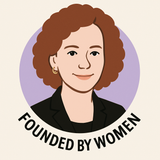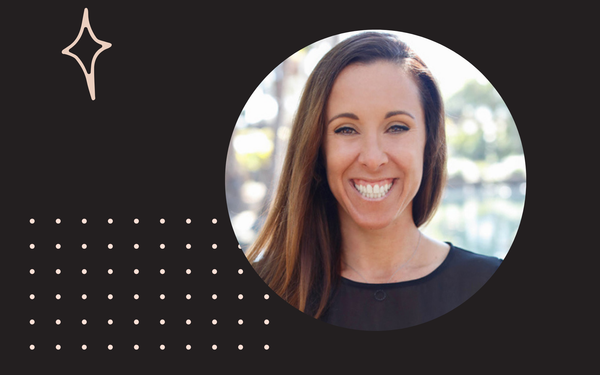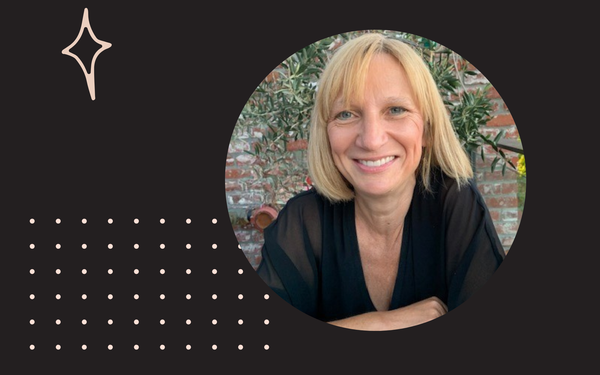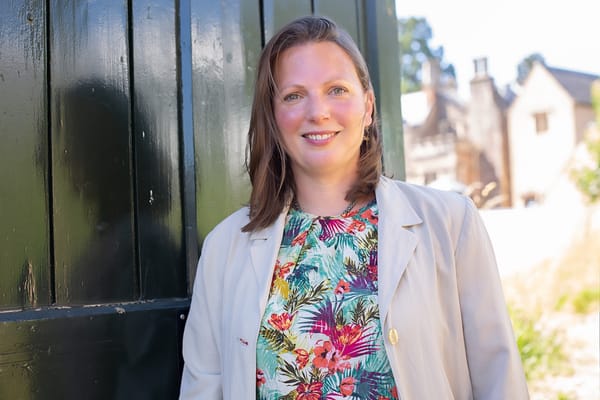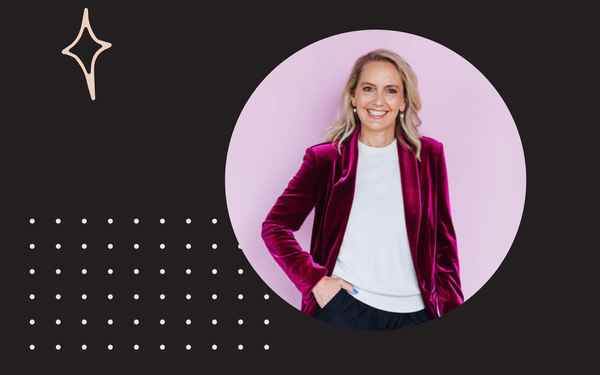Q&A with Melissa Lohrer, Founder of Waverly Ave Consulting
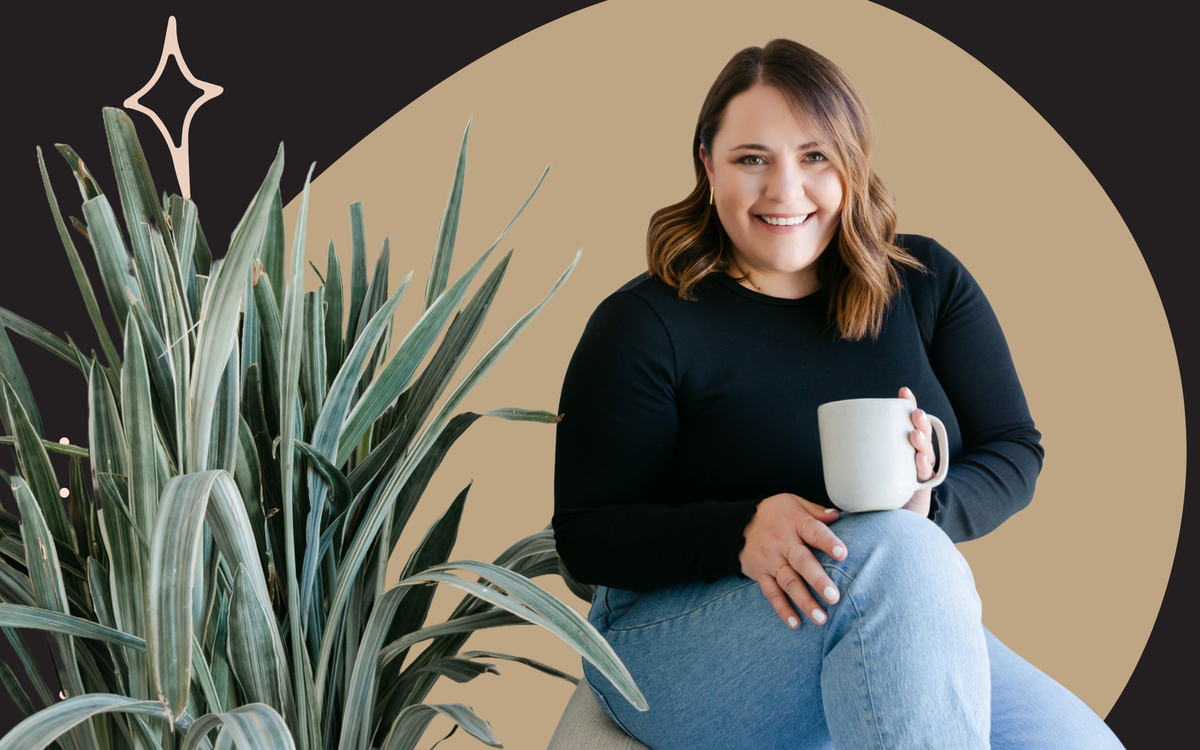
Meet Melissa Lohrer, the visionary founder of Waverly Ave Consulting. With an impressive 13-year tenure in the creative agency sphere, Melissa's most notable role was as the Head of Growth at a prominent branding agency in New York City. Throughout her career, she ambitiously chased milestones she set for herself, dedicating her energy to the hustle that agency life demanded. However, this relentless pursuit eventually led to a point of burnout, prompting a profound re-evaluation of her career and life priorities in her mid-thirties.
In this period of introspection, Melissa discovered her true calling: consulting with creative agencies on business development. She found herself drawn to agency founders overwhelmed by the ceaseless quest for new business, and she became determined to remedy the unsustainable model that plagued the industry.
This resolve gave birth to Waverly Ave Consulting, where Melissa has carved out a niche as a Business Development Partner for independent creative agencies on the verge of breaking the $1 million mark. Her focus is particularly on empowering six-figure female founders, challenging the disheartening statistics that less than 1% of creative agencies are woman-owned and less than 2% of women-owned businesses reach seven figures in revenue.
Q1: Share with us the fascinating journey from your role as a Business Growth and Development leader within agencies to the inception of Waverly Ave.
My career was by no means an overnight story. And for most of it, I had no idea where I was going in the long-term. As long as I'm being challenged and growing, I felt I was on the right path.I started in the world of advertising as a receptionist at a well-known, global agency in NYC. It's a great first job because you get to observe every role and interaction in the business. I went on to be an Executive Assistant for a year, another observer role but with more access to the C-suite and leadership conversations. Unfortunately I was being underpaid and after working up the courage to ask for a small raise and being declined, I resigned. It wasn't just about the money but the fact that I was being undervalued. I was at a junior level so I understood I needed to be patient - but I also knew what other Executive Assistants in the company were making and I was making less than half that.
They weren't able to explain why I wasn't eligible for a raise or show me any kind of trajectory within the business. That was my first lesson in knowing my worth and leaving was one of the best decisions I ever made for my career. That month, I accepted a role as an Account Manager position at a small branding agency. I learned more about the business from managing projects and got to develop strong relationships with clients. I was always someone who was an intrapreneur - building a business inside a business. I started supporting the Partners on business development and that became my side hustle. I loved knowing my efforts made a difference in the bottom line and that I was directly responsible for new client partnerships. I climbed the ladder for over a decade, eventually leading a small team as the Head of Growth & Development at that agency. Enter: the pandemic. I was already on the edge of burnout and the pandemic only made it worse. I had anxiety I had never felt before and caught myself coaching myself to get through each day and new week of work.
I lived for the weekends.I remember thinking, "this can't be it". The burnout got to such a bad level, I had no choice but to quit my job. I took a month off to...really do absolutely nothing. And then I started consulting to buy myself time to explore new paths. And consulting ended up being my path. Since starting my business, it has continued to evolve. I started an incubator program for six figure agencies looking to grow. I started focusing on female founded agencies in particular since less than 1% of creative agencies are currently owned by women and less than 2% of women owned businesses make it to seven figures. Those statistics continue to drive me in the work that I do. My business is all about balance - having the freedom of flexibility, time, and creativity. Working with thoughtful people. Doing the work because it matters. Putting happiness at the center.
Q2: What pivotal moment or realization prompted you to shift gears from the corporate world to pursue your own venture?
So many pivotal moments (some mentioned above) which at the time felt like major fails.What I've learned is when a door closes, find another open door. Sometimes in those pivotal moments, you feel like your vision isn't possible. But there is always another way in.The pivotal moment for me was hitting a level of burnout where I wasn't motivated to get out of bed on a Monday morning. And it got harder and harder to fake it for my team and for clients. It was less about the work itself but more about the work environment that was no longer working for me.
My experience with burnout has shaped a very strong point of view on agency growth. I see so many agencies growing at the cost of their teams. It leads to a high stress environment (where creativity can't thrive), high turnover (which is costly) and low client retention (which increases acquisition costs and decreases referrals). I know there is a better way because I've grown my business better. And I've worked with dozens of agencies to grow sustainably and profitably - all while doing better work.
Q3: Reflecting on your intrapreneurial mindset, how has this shaped your entrepreneurial approach in building Waverly Ave?
Being an intrapreneur for over a decade was a great training ground. There was a lot less risk because I had a steady paycheck and I was able to learn through the lessons of another entrepreneur. The company's culture was also very entrepreneurial - we had very few established processes, hierarchies and tools. So I learned to be very resourceful, agile, and brave when it came to figuring things out. I saw I was a good builder (mapping out a strategy and making it happen) and great at creating momentum when we were stuck.
All of those experiences and skills make me a better entrepreneur. Everything is figureoutable is my approach to entrepreneurship. But there were also a ton of new lessons in my first year of business. Particularly around finances, legal, taxes - areas of business I hadn't been exposed to yet.
Q4: Could you unveil some innovative tactics or strategies you've employed to empower agency founders on their path to achieving $1m milestones?
It sounds simple but it starts with figuring out what business you want. A lot of agency founders start their business as an experiment. They freelance for a bit, they get a bunch of clients through referrals...and all of the sudden, they are running a business. And sometimes they don't pause to ask themselves what kind of business they want. They just stay in that reactive mode, responding to the business that is coming to them.
When you are growing a business sustainably and profitably, it has to be with intention.Questions I ask are...- Do you want a team? How big?- Do you want to be remote, hybrid or have an office?- Do you want to be working with big brands, small brands, local, global?- What type of clients do you enjoy working with? Corporate execs or entrepreneurs? Once you know what you're building, you can reverse engineer your growth plan from there. I also show people how to do business development, attracting the right clients for their business, in a very uncomplicated, non-salesy way.
At the end of the day, business development in the agency world is all about relationships. Anyone can build relationships - and in fact, being non-salesy is a strength.So I show people how to approach outreach in a better, more productive way that gets results every time. I show them how to approach sales so they don't get ghosted. I show them how to have a winning sales call without being salesy. And then they don't have business development problems. They have control over who they work with and when they get new business. And they can run a more enjoyable, sustainable business over time without the dramatic ups and downs of founder burnout.
Q5: How has the establishment of Waverly Ave redefined your sense of fulfillment and work-life balance compared to your previous corporate endeavors?
Burnout completely redefined success for me. Titles and money are secondary to happiness. Happiness looks different sometimes weekly, monthly, and seasonally for me. And I really stay in tune with how I feel because if I'm feeling good, my business is doing well.
I think a lot of entrepreneurs have it backwards - if my business is doing well, I'll feel good. But I built a career on that framing and it led me nowhere.So now success for me is partnering with the right clients that bring out the best in me. Having a balanced schedule that fuels my creativity. Working between 5-6 hrs per day. Taking off 2 weeks each quarter. Charging rates that represent the value I bring to my clients' businesses. Continuing to learn, grow and evolve the business around what lights me up.
Having a rich network of advocates and peers that support me and I support back. Being able to show up as myself every single day and being appreciated for that.I hope everyone, whether in corporate roles or not, finds this in their careers at some point. Because there really is nothing better.
Are you a female executive with a powerful story to share? Founded by Women is dedicated to elevating and amplifying the voices of women making an impact. If you want to share your story, don't hesitate to contact us.
